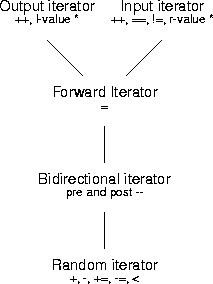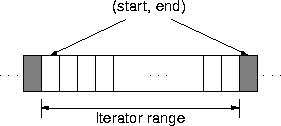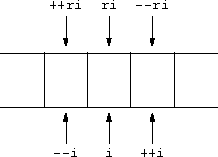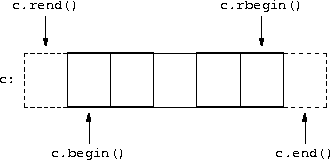== determines if two iterators reference the
same container location.
- That's "container location", not "container element".

- This is similar to pointers.
itr1 < itr2 determines if the container
location referenced by itr1 appears to the left of the container
location referenced by itr2.
- "To the left of" can be read as "closer to
.front()". - Again, That's "container location", not "container element".
-
itr1 < itr2only makes sense if both iterators refer to the same container.
== and <.



